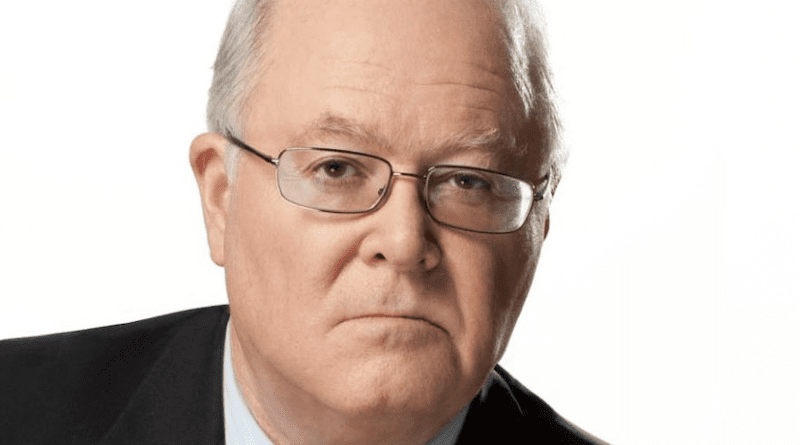Blowing Up The DEI Agenda – OpEd
DEI training (Diversity, Equity, and Inclusion) cost American business $8 billion a year, and while there are some signs that it is peaking, it is not for lack of trying. For example, since 2019, “Belonging” has been added to this scam, hence DEIB. This is a classic case of empire building.
Democratic pundit James Carville recently said that his party was sending messages that are “too feminine.” He’s right. What he said is also true of business—we are witnessing the feminization of the workforce.
We can thank a professor—who else?—for adding the “B” to DEI. Eric Carter at Vanderbilt says that diversity, equity and inclusion are not enough. “People want to be more than merely integrated or included. They want to experience true belonging.”
Traditionally, a sense of belonging has been fulfilled by the family, or by tribes and clans. Many turn to religion to satisfy this primordial need. It took until now before anyone thought we should find it on the job.
Brene Brown is an expert in assessing “belonging.” She cautions that it is not the same as “fitting in,” which she despises. “‘Belonging’ is being your authentic self and knowing that no matter what happens, you belong to you….Belonging doesn’t require us to change who we are; it requires us to BE who we are.”
Sounds nice. But in the real world there are employees who come to work with a pierced tongue and metal hanging from their nostrils. They don’t want to belong—they want to be different. Now their quest to be different may be an expression of their “authentic self,” but if choosing not to belong matters more to them, then why should co-workers who find their appearance, and their hygiene, disgusting be treated as if they are the problem?
Daniel Buford and his colleagues at the People’s Institute for Survival and Beyond are also regarded as experts on “belonging.” They hate striving for perfection—that’s a white man’s hang-up. “Striving for perfection leaves us all feeling short, left out, and lacking belonging.”
Tell that to teams who compete in the Olympics. Striving for perfection—in unison—creates strong bonds. Indeed, the same is true of all team sports, starting in elementary school. It is the slackers who find it difficult to belong. That’s why athletes have clubs, and slackers have none.
W.K. Kellogg Foundation is a left-wing organization that boasts of its opposition to “othering.” Never heard of it? Neither did we. So let us introduce you to it.
“Othering” is the opposite of “belonging.” According to an Oxford Reference, “A Dictionary of Gender Studies” says the phenomenon of “othering” is “a process whereby individuals and groups are treated and marked as different and inferior from the dominant social group.”
This sounds suspect. Among the most “othered” people in Silicon Valley and Hollywood are Trump supporters and people of faith. They are loathed. But this would never occur to the gurus of “belonging,” which is why they list homosexuals and migrants as victims of “othering,” not MAGA fans and practicing Catholics.
“Othering” is such a bonanza that there is even a guy at the University of Berkeley who runs the Othering and Belonging Institute on campus. This creative empire builder apparently has little need to belong, which is why he likes to separate himself from the rest of us by using the lower case to identify himself. He goes by john a. powell.
How can we recognize “othering”? One website that addresses this issue gives us an example. “Attributing positive qualities to people who are like you and negative qualities to people who are different from you.”
Apparently this is bad. But if it is, why are the same people who are pushing DEIB also pushing Critical Race Theory (CRT), the pernicious ideology that demonizes white people? Are not the practitioners of CRT—those who celebrate racial divisions—blowing up the DEIB agenda? They can’t have it both ways. But it’s a sure bet this never occurred to them.
There are other contradictions baked into this hoax.
PowerToFly is a website with chock-a-block info on “belonging.” Its idea of “belonging” means that “Direct communication is preferred over back-channeling.” But if this is true—and it is—then why would they give a shout-out to working at home? “The benefits of remote work for diverse talent are recognized.”
How can this be? How can there be “direct communication” with those on Zoom? And what does remote work have to do with facilitating “diverse talent”?
The geniuses behind the “belonging” craze need to grow up. They can’t be celebrating diversity—how different we are—at the same time they are celebrating “belonging.” Nor can they be celebrating “inclusion”—inviting everyone in—when it is well known that the most tightly knit groups in the world are in-groups, those that exhibit a strong sense of belonging precisely because they exclude most people.
To say that the DEIB agenda is a racket is an understatement. It’s also built on contradictory principles.

